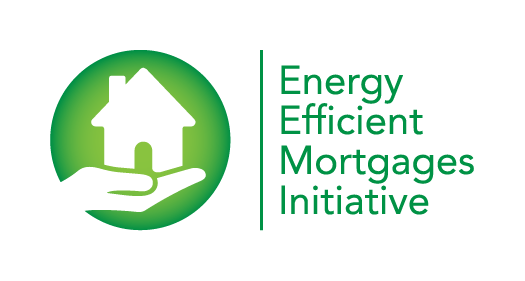
By Miguel Garcia de Eulate, Head of Capital Markets, Caja Rural de Navarra
One can be forgiven for embracing a pessimistic view on the future of retail banking: low margins, huge adaptation costs to digitalisation, and new regulatory burdens are constantly – and rightly – mentioned as the biggest challenges for the industry.
However, what if retail banks could reinvent themselves as, well, retail banks, committed precisely to the very needs of their client base? What if new sources of revenue do exist, and the role of banks is to effectively channel savings to finance long-term financing needs, helping to overcome social and intergenerational gaps?
What if – on top of that- , the above-mentioned aims could be pursued within the global agenda developed by the international community to protect the environment?
Caja Rural de Navarra is a regional retail bank belonging to the European cooperative banking family. Cooperative banks know what it takes to be sustainable, because they serve their local communities, and are expected to reinvest profits for the future generations of clients and members instead of maximising short-term shareholder value.
We issued our first Sustainable Covered Bond in 2016, and we have followed this year with a Sustainable Senior Unsecured transaction. Our Sustainability Framework (which has a Second Opinion by Sustainalytics) has nine different social and environmental lines, one of them being “Energy Efficiency”. However, we were disappointed by the fact that we had not enough data to include buildings’ energy efficiency (that is, for residential and commercial purposes) within the framework at the time when it was developed.
This is why we have joined the EMF-ECBC’s EeMAP initiative.
The EeMAP initiative has in my view all the ingredients to successfully incentivise both borrowers and lenders to embark on the improvement of buildings’ energy efficiency in Europe:
- Since its creation, it has involved finance, valuation and technical institution and experts.
- It has adopted a professional approach by acknowledging the need to find positive evidence to prove the lower risk nature of energy efficiency financing, involving academics from top Universities and getting the support of the European institutions.
- It has the enthusiasm and long-term view for such a complex project to be pushed forward.
Green finance is a multifaceted subject: We – banks – can originate those assets on the first place by lending to our clients, but we can also issue bonds with a “use of proceeds” commitment (Green or Sustainable bonds) and benefit from the lower risk of these loans and also from the diversification of investors’ base that green issuing brings; Borrowers can improve their building’s value and reduce their energy bill; The EU can greatly improve the CO2 reduction targets; and new jobs and growth can be created from the huge investments that the renovation of an outdated housing stock in Europe would release.
Nevertheless, the Energy efficient Mortgages Action Plan (EeMAP) initiative faces huge challenges. Mortgage lending is a very relationship-intensive, cumbersome and highly bureaucratic process, with a very granular base and still within nationally regulated legal frameworks.
This is why, in my view, retail banks should get involved in EeMAP. They (we) have the capabilities to reach a dispersed population, with a regional focus that takes into account local differences in housing and energy needs. They can participate in the financing of buildings’ improvements as well as in the construction sector’s necessary involvement in these efficiency upgrades.
Caja Rural de Navarra, as part of the Spanish Caja Rural Group and UNACC, belongs to the European Association of Cooperative Banks (EACB). The EACB is engaged in the dialogue with the European institutions and has participated in the consultation by the High Level Expert Group on Sustainable Finance (HLEG), highlighting the role played by co-operative banks in stimulating investment and creating jobs by lending to the real economy and financing activities aimed at climate protection and renewable energy.
The European energy efficiency mortgage (EEM) can be a game-changer for the European economy and for its citizens. It can also mobilise finance to enable an economic development which is at the same time compatible with the preservation of the environment through a meaningful reduction of CO2 emissions in line with the objectives included in the EU’s 2020 climate and energy package and the Paris Agreement.
The European banking sector, and particularly the retail networks that form the backbone of the financial services in our continent, are an essential ingredient of any economic strategy oriented towards a more sustainable economic model that takes a broader and more inclusive perspective of the different stakeholders – present and future – involved.
We believe that the EeMAP initiative is a clear example of a win-win project which needs to be fostered. As once a character of Cervantes (El rufian dichoso, 1615) said: “Good acts never lack rewards”. 400 years later, his sentence still holds true.
Sitemap
Copyright © Energy Efficient Mortgages Initiative


The project DeliverEEM has received funding from the European Union’s LIFE 2023 programme under grant agreement No.101167431. The EeMAP, EeDaPP, EeMMIP projects have received funding from the European Union’s Horizon 2020 research and innovation programme under grant agreements No. 746205, No. 784979 and No. 894117 respectively
Privacy Overview
| Cookie | Duration | Description |
|---|---|---|
| cookielawinfo-checkbox-analytics | 11 months | This cookie is set by GDPR Cookie Consent plugin. The cookie is used to store the user consent for the cookies in the category "Analytics". |
| cookielawinfo-checkbox-functional | 11 months | The cookie is set by GDPR cookie consent to record the user consent for the cookies in the category "Functional". |
| cookielawinfo-checkbox-necessary | 11 months | This cookie is set by GDPR Cookie Consent plugin. The cookies is used to store the user consent for the cookies in the category "Necessary". |
| cookielawinfo-checkbox-others | 11 months | This cookie is set by GDPR Cookie Consent plugin. The cookie is used to store the user consent for the cookies in the category "Other. |
| cookielawinfo-checkbox-performance | 11 months | This cookie is set by GDPR Cookie Consent plugin. The cookie is used to store the user consent for the cookies in the category "Performance". |
| viewed_cookie_policy | 11 months | The cookie is set by the GDPR Cookie Consent plugin and is used to store whether or not user has consented to the use of cookies. It does not store any personal data. |

